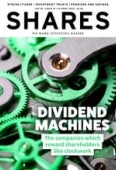What Bitcoin halving means and why the price barely moved

Followers of Bitcoin will have been closely watching the latest ‘halving event’ in the cryptocurrency which took place on 19 April.
For the fourth time, the number of new Bitcoin entering the market has been slashed by cutting the rewards earned by Bitcoin miners by 50%.
Mining Bitcoin involves using powerful computers to solve extremely complicated mathematical problems in order to verify transactions in the currency. In return for this work the miner receives a predetermined amount of Bitcoin.
Planned to take place at rough four-year intervals, the eventual aim of halving events is to cap the supply of Bitcoin at 21 million units by 2140. The halving mechanism was written into Bitcoin’s code when it was first created.
Previous halvings (in 2012, 2016 and 2020) were followed by strong gains for Bitcoin, as the table shows.
However, this time round the situation may end up reinforcing an idiom which has a rather longer history than Bitcoin itself: when it comes to investing, it is better to travel than arrive.
Financial markets, made up of countless individual investors, are forward-looking, discounting mechanisms. They seek to anticipate an event, price in a perception of what it means and then move on. It is only when a fresh piece of news emerges which challenges the market view that the price of an asset is likely to see a significant change. Put more simply, markets specialise in buying on speculation and selling on fact.
The latest acquisition by JD Sports (JD.) received a positive reception from the market which, given it represented a UK retailer boosting its US footprint, feels fairly significant.
The US has often been a graveyard for the ambitions of UK companies keen to expand but JD’s previous success in the States gives it the credibility others lack. One of the key decisions it made when acquiring Finish Line for $558 million in 2018 was to retain the existing management team and leverage their considerable expertise.
This strategy proved to be a winner, and the company followed it up with the $681 million capture of Shoe Palace. It will hope the $1.1 billion deal for Hibbett proves similarly successful.
Important information:
These articles are provided by Shares magazine which is published by AJ Bell Media, a part of AJ Bell. Shares is not written by AJ Bell.
Shares is provided for your general information and use and is not a personal recommendation to invest. It is not intended to be relied upon by you in making or not making any investment decisions. The investments referred to in these articles will not be suitable for all investors. If in doubt please seek appropriate independent financial advice.
Investors acting on the information in these articles do so at their own risk and AJ Bell Media and its staff do not accept liability for losses suffered by investors as a result of their investment decisions.
Issue contents
Daniel Coatsworth
Feature
- Tap into micro caps for a slice of UK innovation
- Chinese manufacturing PMI data needs to be closely watched
- Emerging markets: China rebound, Indian elections and valuations
- Small World: read about Gresham Technologies, T Clarke, REDX Pharma and more
- Are corporate spin-offs a good hunting ground for profitable investments?
- Dividend Machines
- Why Darktrace is getting exciting again
Great Ideas
Investment Trusts
News
- Ocado shares wobble after M&S relationship turns sour
- United Airlines soars on upgrades despite Boeing-related hit
- Retail sales not as bad as reported, while consumer confidence rises slowly
- Warnings from chip giants cast doubt over semiconductor optimism
- FTSE 100 finally joins the new-highs club despite being unloved for years

 magazine
magazine








